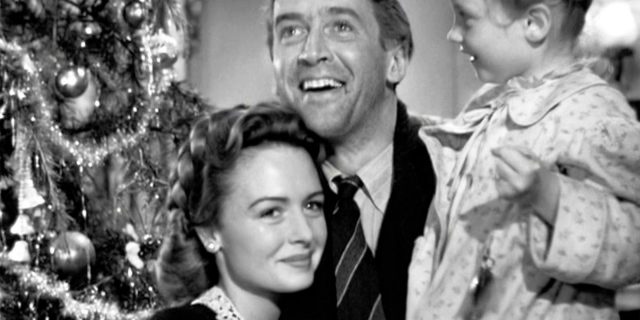Criterion Prediction #222: It’s a Wonderful Life, by Alexander Miller

Title: It’s a Wonderful Life
Year: 1946
Director: Frank Capra
Cast: Jimmy Stewart, Donna Reed, Lionel Barrymore, Thomas Mitchell, Beulah Bondi, Henry Travers
Synopsis: George Bailey (Stewart) recollects his life’s many touchstones thanks to an unlikely angel when he contemplates suicide on a wintry Christmas Eve.
Critique: It’s a Wonderful Life is a movie that everyone is aware of; generations caught the film thanks to its second life on television. Over the years, it’s rightfully become a classic Christmas movie. It’s immersed into our pop-cultural lexicon. Everyone knows the story, can recognize scenes, do their best Stewart impersonations. Divorce It’s a Wonderful Life from the referential arena and address its core merits and what you have is an inspired and crackling, exceptional piece of cinema. And it’s no wonder. It’s not a coincidence that Capra’s 1946 feature became a beloved item. Everyone in front of and behind the camera is operating at the top of their game, the cast is Hollywood’s finest from the studio era and who could better elaborate the contrasting levels of nostalgia, holiday mythos, familial drama and Americana than Capra? It would be easy to look at It’s a Wonderful Life as one of those cases where everything just “fell into place” but, of course, no film production (or critical interpretation) is that simple.
The postwar notes have substantial resonance, an appealing line of interest that is just as valid now as it was in 1946. Stewart, after his military service, had reservations about playing a part in the movie. Struggling with what we now know as PTSD, Stewart received some inspiring words from Lionel Barrymore: “So, are you saying it’s more worthwhile to drop bombs on people than to entertain them?” Thankfully, Stewart’s change of heart would shape the film into what we know and love today. Still, it’s hard not to derive some supplementary context in realizing the film’s diverse tone and the emotional resonance of Stewart’s triumphant performance. Bailey’s altruism and dedication not only seems fruitless but result in domestic anguish and financial ruin. His despair drives him to attempt suicide. Of course, his encounter with Clarence is the more potent allegorical section; the main character not recognizing his hometown, seeing an environment make a quantum leap due to his absence, the hostile atmosphere, people, and civic ruin feel inspired by veterans’ experience and Stewart’s natural but exuberant performance encompasses the film with substance, humor and warmth. George Bailey has a steadfast commitment to his family and community and an overall desire to be a good person.
Why It Belongs in the Collection: One of the major qualifiers for this item making its way into the coveted Criterion Collection is simple; It’s a Wonderful Life is one of cinema’s more well-known public domain specials, like Night of the Living Dead, Charade, Carnival of Souls, Detour and many more. It’s a Wonderful Life might be relegated to a “Christmas movie” in the public consciousness but movie fans have a year-round affection for Capra’s classic. And who makes up the fanbase of The Criterion Collection?




























I had heard the rights had been secured so that only one channel would play the film now around Christmas, but that might be only for tv and not home video.
That sounds accurate, it always plays on NBC, right?